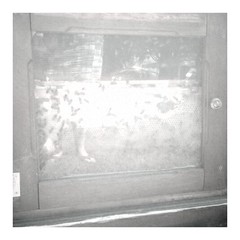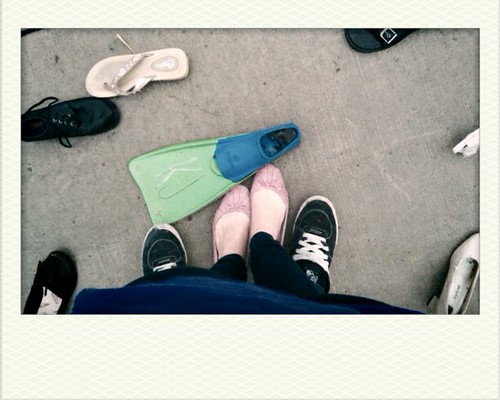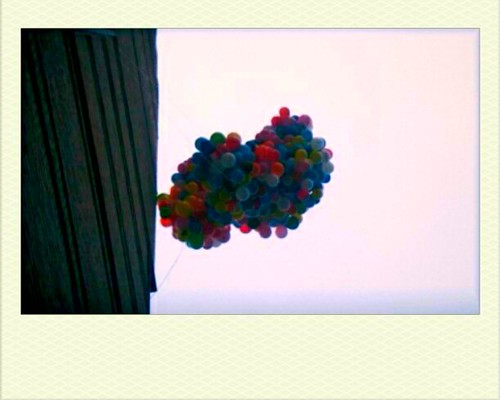The Blind Pig is hosting Boyce Avenue at EMU’s Pease Auditorium on Saturday October 22nd at 7 p.m. Boyce Avenue, an acoustic-rock band comprised of three brothers from Sarasota, Florida, quickly gained popularity on Youtube through their unique and heartfelt acoustic covers of popular songs from a variety of genres. Now with several hit songs of their own, Boyce Avenue is back on tour, finishing up their US tour this Saturday at EMU before heading off to the UK. Boyce Avenue was here in Ann Arbor last spring performing for a packed house at The Blind Pig. With a growing fan base and a larger venue, this weekend’s concert is sure to be a fun and exciting experience. You can buy tickets to the concert on The Blind Pig’s website before the show for $18, http://www.etix.com/ticket/online/performanceSearch.jsp?performance_id=1499607&cobrand=blindpigmusic, or you can purchase tickets at the door for $22. For more information about the concert, visit the Facebook event page: http://www.facebook.com/event.php?eid=128245783920804.
PREVIEW: Cloud Gate Dance Theatre
The Cloud Gate Dance Theatre of Taiwan will be performing at the Power Center on Friday October 21st and Saturday October 22nd at 8 p.m. The company will perform Water Stains on the Wall, artistic director Lin Hwai-min’s newest piece. The work is a metaphor for the exquisite beauty of Chinese calligraphy, the dancers’ movement like flowing ink on pure rice paper. With dancers trained not only in ballet and modern dance, but also tai chi, meditation, and Chinese opera movement, the unique quality and control of the movement is sure to be breathtakingly ethereal.
For tickets visit the UMS website: http://ums.org/s_current_season/artist.asp?pageid=662&gclid=CL6F5YOL-KsCFQ175QodAzRIJg
And to get a taste of the art of Chinese calligraphy before seeing the show, come to the Power Center from 7-7:45 p.m. on Friday and Saturday to work with local calligraphers.
Review: Yuja Wang-Diva and Pianist?
The arts season has started here at the University of Michigan and I am so excited!!! There are so many great performances and events this semester that I’ve basically booked myself for at least one show a weekend. That being said, I’ve already gone to three amazing shows this semester; Mark Morris Dance Group, John Malkovich in The Infernal Comedy, and Yuja Wang. Mark Morris gave us an excellent show of both modern dance and creative use of historical narrative in his last act “Socrates” which
told us the physical and emotional story of the death of the beloved philosopher. John Malkovich, in his one-man show “Confessions of a Serial Killer,” performed for us once again why he is an acclaimed classic American actor, whose name everyone knows even though they cannot remember a single movie, except “Being John Malkovich,” that he’s been in (Just so you know he was also in Con Air and Good Night Gracie). He was absolutely fantastic in this strange postmodern production of the life of a serial killer. What I really want to get down to though, in this review, is Yuja Wang.
This young pianist in the looming Hill auditorium is a light that brings to the audience a sense of depth, excitement, and inner turmoil. It’s hard to distinguish the peace that she creates inside of us and the passion that she pushes into the piano with her delicate, yet powerful fingers. I’ve never been to a piano recital before, so I should probably start off by saying I know nothing about piano except for what I hear in movie soundtracks. I do know, however, that Ms. Wang is a wonderful and talented artist. She plays the piano with so much more than her fingers. Her entirety goes into the keys, into the strings and the hammers. It becomes both a lover and an enemy. The piano is her therapist, and she pours everything into it, onstage, for us.

I’m not going to act like I know anything about composers or the pieces she plays, and if you do then awesome! So instead of listing the program, I’ll just give you the website. http://www.ums.umich.edu/s_current_season/artist.asp?pageid=656
If you clicked on that, it means that you saw the four, count them, FOUR encores that the fabulous Ms. Wang performed. This is why I say Diva. Yuja not only has one of the most dynamic and elegant bows I’ve ever seen, but she Diva’d her way into four amazing encores and she had a costume change! From one elegant red gown that she took the stage with to the little black dress with a slit up to here and a back down to there. Both were breathtaking and powerful. She belongs onstage. Thus, Diva! Even sitting at the back of the balcony, this woman made me feel the music and took me by complete surprise.

I also really appreciated the quick glimpse of my childhood in one of her encores. Dukas : “The Sorceror’s Apprentice” arranged by Yuja Wang. Also known as “Woh! It’s that song from Fantasia with Mickey Mouse!!!!” I think “The Sorceror’s Apprentice” sounds classier though.
Aside from Yuja, because I know we’re all busy and you can’t spend all day reading my random stream of consciousness, I wanted to let you know what to expect from me the rest of this semester. Some pretty awesome stuff. This weekend I’m seeing the Full Monty (yes because it’s naked guys on stage. You don’t have to speculate. That IS the reason I’m going) and the Cloud Gate Dance theater. I’ll also be going to the Gate Theater of London production, Diego El Cigala, and the Beijing Guitar Duo. These are only the UMS shows I’m going to however. I’m sure I’ll be going to other SMTD productions, and I know I’ll be at the opera. So keep reading me and I hope to tell you a little of what I think of these shows, because, realistically, you couldn’t ever live without my opinion and this isn’t just a great way to procrastinate…Did anyone believe that? Because I said it and even I saw through it. Whatever. I hope you enjoy reading my reviews, and if not, I really just want you to go see everything you can. So like I always say, get out there on campus and see some of the amazing things it has to offer.
Sending you love and light,
Danny Fob
p.s. “Sending you love and light” is a quote from my favorite TV show. If you can figure it out, I’ll give you five points. Or buy you a coffee
REVIEW: Falling in Love with Lavender
Woken up by my mom’s incessant cries, I launched out of bed to see what was wrong. “How appropriate. The one day I have off this week and what do you know? It’s raining,” she said. Still half asleep, I reassured her that the skies might clear up. It was a classic case of bad luck but rather than letting the rain spoil our morning I remained hopeful; the storm clouds could rain on our parade but our spirits couldn’t be dampened.

“That’s Pure Michigan for you,” I interjected with as smile as she continued to sulk in disappointment. “Even if it’s raining and we’re knee-high in mud we’ll be sure to have a good time,” I said reassuringly. With a little more persuasion and a steaming cup of press coffee to calm the nerves, mom agreed to set off to Blake’s Farm in Armada Michigan where the annual Lavender Festival awaited. Knowing the state of Michigan’s unpredictability, the forecast is always susceptible to change.
At the beginning of the summer I created a list of things to do before the summer’s end. The list included hosting a three-course dinner party, venturing on a spontaneous road trip, starting an herb garden, going to a drive-in movie theater, flying a kite, riding the People Mover, and other mini goals within Michigan boundaries. The list continues to grow as I cross off older items, marked with the date of completion, and then add new items to stand in its place. One day while editing the list I recalled receiving a pretty postcard advertising some sort of lavender festival. The postcard was long lost, shuffled away in a mountain of mail somewhere. Starting an herb garden had been crossed off the list months ago and since it’s completion, I’ve fallen in love with fresh herbs and cooking. Lavender, I thought, would be a nice addition.
 In an effort to research the plant, I researched ‘lavender festivals’ in Michigan and stumbled upon Blake Farm’s website, which described the event as “symphony for the senses.” The event promised the perfect mid-summer getaway with only a short drive from the hustle and bustle of city life. The drive was truly an escape, passing acres of orchards, old Victorian-style houses, and abandoned barns that took on a charm of their own. Unfortunately, the website notified visitors that the Lavender harvest was postponed until next summer do to cold, wet spring. That’s the “murder mitten” for you I suppose. Saddened by the news, I regretted that we were unable to pick our own lavender; however, Blake Farms offered an orchard full of fresh raspberries and tart cherries to gather. I’ve decided to save the U-pick orchard for a later date when blueberries are in season, enabling me to knock two additional items off the list: canning and picking.
In an effort to research the plant, I researched ‘lavender festivals’ in Michigan and stumbled upon Blake Farm’s website, which described the event as “symphony for the senses.” The event promised the perfect mid-summer getaway with only a short drive from the hustle and bustle of city life. The drive was truly an escape, passing acres of orchards, old Victorian-style houses, and abandoned barns that took on a charm of their own. Unfortunately, the website notified visitors that the Lavender harvest was postponed until next summer do to cold, wet spring. That’s the “murder mitten” for you I suppose. Saddened by the news, I regretted that we were unable to pick our own lavender; however, Blake Farms offered an orchard full of fresh raspberries and tart cherries to gather. I’ve decided to save the U-pick orchard for a later date when blueberries are in season, enabling me to knock two additional items off the list: canning and picking.
Although handpicked lavender would have been a nice addition to the day’s events, the Michigan Lavender festival commemorated the purple plant in other ways. The festival knit together groups of local vendors and artists who are passionate about the multi-purpose plant as well as Michigan-made products. Booths catered to the medicinal and culinary benefits of lavender. Drawn to the sweet words of ‘free sample,’ I circled the tents, tasting lavender infused baked goods and treats. Fortunately, mom and I arrived at the crack of dawn in order to escape the heat and crowd; therefore, we were among the first to snag limited samples of lavender shortbread and scones. To my mom’s satisfaction and amusement, the sun made an unexpected appearance. Unfortunately, we could only avoid the sun’s rays for so long and by ten o’clock the sun was beating down hard. Michigan had pulled a complete three-sixty and judging by the brilliant blue skies, no one would have guessed it was raining earlier. “See, you never know what the day has is store,” I said while trying to hold in a laugh.

Ladies dressed in shades of lilac strolled the grounds, sipping on lavender ice tea and sampling spoonfuls of lavender sugar and lavender infused honey. In hopes of cooling off ourselves, mom and I decided to indulge in a scoop of homemade lavender ice cream under a shaded picnic table. There, we revealed our purchases. We exchanges stories and shared our newly found treasures. A sashay of dried lavender, two lavender plants, and a bar of lavender soap for mom and a pouch of loose lavender lemonade tea and a tiny tin of culinary lavender for me. Needless to say, we both fell in love with lavender.

Days like these last forever. The drive alone reminded me Michigan’s raw beauty and that you don’t have to travel far to find it. Meeting the face behind the product rooted a new understanding of “supporting local:” a term we are often encouraged to use but frequently forget. There are plenty of places to go to celebrate Michigan farmers and entrepreneurs who are working to bring local Michigan to our tables and those men and women should never go without recognition. Michigan farmer’s markets, flea markets, and farms are among many places agriculture, art, and culture are connected. There, priceless treasures can be found and even though up north is among every Michigander’s favorite place to visit, the gems hidden along the way are perhaps the most valuable.

While driving home we passed endless fields of baby green apple trees and I thought about the upcoming season of fall. Autumn promises walks through pumpkin patches, the scent of garden harvest bread baking in the oven, and frequent trips to the Franklin Cider Mill where brown paper bags dipped in grease are vied as if they were gold. No matter how much I may anticipate the arrival of autumn, it’s important to remember the beauty each season Michigan harvests. After fall comes old man winter and that’s something I’d like to postpone for as long as possible. In the meantime, average days can be turned into memories by discovering what surrounds you: friendly neighbors, delicious food, and “pure” adventure. Enjoy summer days even if the weather is grey- it may surprise you.
Visit www.blakefarms.com to check out upcoming events or to check up on what produce is in season.
Blake Farm Events
Arts and Crafts Show Sunday and Monday September 4th -5th (10am-5pm)
Fall Festival Show on Saturday and Sunday September 10th-11th (10am-5pm)
Interested in brewing your own cup of Lavender Lemonade Tea? Visit www.HerbalSereniTea.com
Bake your own Lavender Shortbread Cookies by following the recipe at http://www.jessicasdinnerparty.com/2009/12/lavender-shortbread-cookies/
REVIEW: Soles of Detroit

For years, my interest in Detroit’s ruins and restructuring has drawn me into an unparalleled world. In an attempt to preserve the much forgotten history and culture of the equally elapsed metropolis, I explore the city with fresh eyes and an open mind. Especially drawn to the city’s underground art scene, trips downtown provide an escape from an uninteresting, middleclass suburbia.
Eastern Market, Belle Isle, and antique stores like John K. King Books are among my favorite places to explore; nonetheless, downtown adventures produce more excitement when letting the city find you and not the other way around.
Last week, while driving to help a friend hang artwork in a gallery space downtown, I came across a woman, surrounded by people, who had collapsed in the middle of Woodward Avenue. It’s unforeseen as to what you may find in Detroit. Unusual? Yes, but surprising? Not particularly. The same day, I stumbled upon a colorful roadblock, scattered with “lost soles”. The style of shoes ranged in scuba flippers, baby slippers, high heels, snow boots, and sandals galore. It had Tyree Guyton’s name all over it. The street was drowning in a sea of shoes, which Guyton encouraged spectators to walk through as long as long as the installation remained undisturbed.

Although caught off guard, the content and medium of the installation proved redundant. Some call Guyton the founder of Detroit’s ‘street art’ movement, but recently, Guyton has fallen off the radar. Guyton and his grandfather constructed The Heidelberg Project in 1985. In its heyday, The Heidelberg Project was a controversial topic in the art world. Mixed reviews ridiculed Guyton for turning trash into sculpture, while others praised him for challenging viewer’s expectations of what art actually is.
Today, The Heiedelberg Project is wearing with age, and Detroit’s expanding art scene is making room for new artists. Last Thursday proved Guyton is back; however, not only is his work reinstituting recycled materials, but his ideas are reused as well.
Walking through the spray painted jumble of shoes was nothing less than eerie. I couldn’t help but wonder whom the abandoned shoes once belonged to, how long it took Guyton to collected such bulk, and whether the previous owners were alive. Each pair was displaced, representing the homeless of Detroit. Many of the shoes reflected trends from the past (platforms, jellies, and light up sneakers),which only widened the gap between where I stood and the empty slots in front of me. Like Guyton, who’s living in the past, the project resurfaces unsettling feelings of time.
Guyton’s obscure “modern art” attempts to stir social debate; however, delivering the pressing issue in old packaging is like beating a dead horse, hopeless. Perhaps Guyton is nostalgic for his glory days, and I can’t deny that his work once proved that beauty can come from decay. The Heidelberg Project originally produced a greater message for the city of Detroit by transmitting the idea that: amidst the city’s ruins, reconstruction is viable.
Peculiarities like the woman in the street and the road block-mixed with adrenaline-make downtown adventures unlike anything else. Unexpected turns and twists catch you by surprise but equally lure you in. Art produces a similar effect. Today, Detroit artists ought to produce works of art that play an active role in the rebuilding of Detroit. Newness is needed and the medium of art can reconfigure old distortions of the city. Detroit is often misrepresented but art and new vision can reshape the city’s broken image.

REVIEW: “UP” North

Living on Central Campus has it perks. Yes, it means waking up at 8:59am and still making it to 9am class ten minutes later. It means short walks to the library and quick jaunts downtown, where it’s almost impossible to settle on one good place to eat. Living on Central makes running errands a lot easier, but perhaps Central Campus students are biased when talking about the ever so illusive “North” Campus.
I admit, for a while I was North weary. I fed into the social stigma attached to living on North by believing rumors about “depressingly boxy rooms” and “crummy dining halls”-all surrounded by a sea of nothingness. Given the chance to visit my Bursley/Baites friends, whose North antics only reinforced these speculations, I often declined the invitation.
Looking back, I imagine I grew accustom to my life on Central and simply couldn’t stand the thought of venturing from my bubble. I avoided North at all costs in hopes of saving myself long waits at the bus stop and getting lost. A semester later, realizing the “Nothing on North” myth to be false, I came to the conclusion that the “other” University Campus holds gems of its own.
The campus houses creative minds alike. The School of Art & Design, Architecture + Urban Planning, Music, Theater, & Dance, and the School of engineering produce artists and lofty works of art, music, acting, dance, and ingenuity. Great artwork, no matter the medium, takes people by surprise. To avoid recycled ideas, University students raise the bar take their creations to new heights, literally.
A mystery student recreated a scene from Disney’s “UP” Monday. Attached to the pinnacle of the North Bell Tower were thousands of multicolored balloons faceted together with string. It was every kid’s childhood dream come true.

Yesterday was one of those crazy days where everything was due: seventeen pages of writing for a Creative Writing portfolio, an exam in The History of Photography, and after being locked away in the Bursley basement of the Living Arts room for a four hour critique, I scurried to catch a bus back to Central. Walking to the stop, I noted a giant bundle of balloons from the corner of my eye. All I could think was “what on earth is that?” With my camera in hand, I ventured off the beaten path for a closer look. Drawn to the bright colors and pure size of the installation, all I could do was look UP.
Getting lost in the hustle and bustle of college life is inevitable. It’s easy to forget the importance of taking notice of life’s little joys and discovering new places. Beauty comes in unexpected packages and at unexpected times. Mystery artist, I’ll call them “Mr. or Mrs. Fredricksen,” delivered an unforgettable gift. Whether the project is a random act of kindness or deliberate, the project colored what would have otherwise been an ugly day. Like North Campus, life can be understated and unappreciated. I encourage readers, especially those who’ve never been, to make the journey and see North for themselves. The so-called abyss unexpectedly taught me to appreciate the little things in life. I’d hate to burst anyone’s bubble but FYI, these balloons prove North to be one giant thumbs UP.



